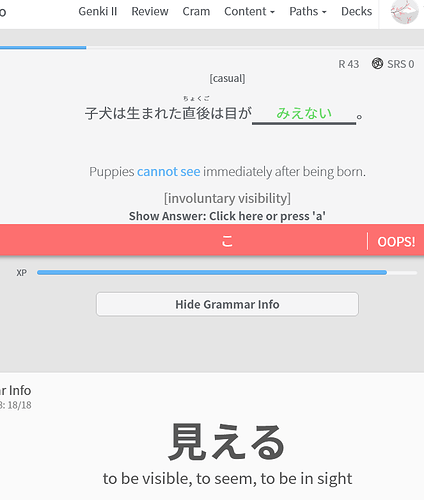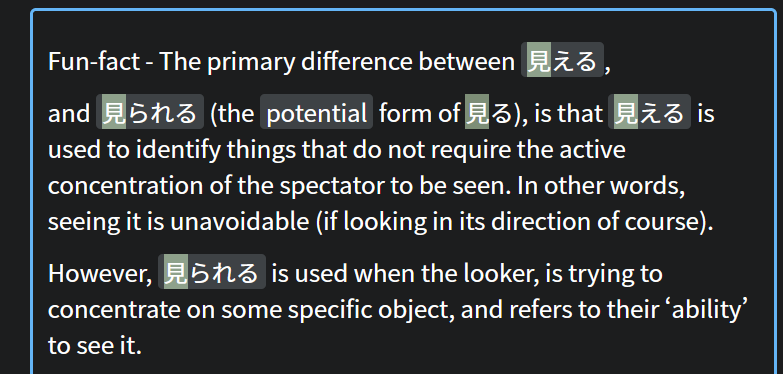so if 見える is ‘can see’ or if something is visable then how does the above example makes sense when its referring to the dogs actually visaul ability and not the visability of something. if that makes sense to anyone, because it doesnt to me 
みえる is a potential verb. Think of it as the “the dog is unable to see after being born”
Another example of this is 行く to go 行ける is ABLE to go.
if you re-read all the example questions and think of it as “able to see/ able to be seen” it will make sense.
Hope it helps ya xx
Adding onto what unchiotoko said and linked and because that kind of is directly linked to the aforementioned grammar point + your example…
You might also want to refer to this, maybe that clarifies the difference between pure potential verbs and potential forms of “normal/conjugated” verbs themself:
→ can be found here
Sentence given is perfectly fine, as the sight of the dog not being existent/dog not seeing anything is beyond its own control as well.
Pretty sure the choice of 見える also just adds additional emphasis on the lack of control.
Not sure how to better explain this 
Edit: you also might wanna note that 見える is an intransitive verb (also why it uses が as object marker), so its less about “the dog doing the action of not seeing” and more about “the eyes not being able to see (on their own)” as well, which is not exactly obvious just going by translation alone.


